
· Excerpt
· Editor’s Comments
· Other Comments
· Find Out More
· Locate a Copy
The folding room was a long narrow compartment in the basement of the House Office Building, with rough walls and a cement floor, provided with long tables of unpainted lumber and high stools. It looked more like a factory than an office. Its atmosphere was dank, and the small high windows up against the ceiling gave so little light that electricity was kept burning all the time. Here the printed speeches of congressmen were folded, placed in envelopes, and sacked for mailing to their constituents.
The amount of this printed oratory was a thing to appall. Speeches bound into bales were piled to the very ceiling. Other bales were always being hauled in on hand trucks, which went back loaded with tons of speeches folded, sacked, and ready for shipment. At the long tables sat rows of men in their shirt sleeves, folding speeches and putting them into envelopes with swift deft movements. They were the very lowest grades of patronage employees — the minor faithful ones, rewarded with these positions at seventy-five dollars a month for work at the polls, for marching in political processions and whooping and clapping at political meetings and conventions. Here in the very bowels of government they toiled, stirring futilely and incessantly, like colon-bacilli, among its profuse excretions.
Mr. Folard, superintendent of the folding room, to whom Ralph reported for duty, was a man whose politeness, discretion and equability of temper should have won him some higher reward in the game of politics where those virtues are so important. A stout man with a large, concealing grey moustache, he resembled nothing so much as a country undertaker. He always wore black clothes and a black derby hat, which he seemed never to remove. It was a favorite pleasantry of the folding room to speculate as to whether he slept in it. He moved about silently on rubber heels, and when speaking to an employee always laid a hand upon his shoulder and addressed him in a low confidential tone as “my boy.” Ralph learned that Mr. Folard had been appointed to his position many years ago under a Democratic administration, and had held it throughout the long Republican regime by reason of his diplomatic bearing toward the Republican congressmen. Any one of them might demand his head at any moment, so that this position could be given to a deserving Republican. Mr. Folard had a large family to feed and had developed his manner of extreme politeness can care in self-defense. He seemed to feel that any slight jar of movement or utterance on his part might precipitate a political explosion which would blow him out of his berth.
Editor’s Comments
Although Harvey Fergusson certainly qualifies as a neglected writer, what lasting reputation he has is based largely on his historic novels of life in New Mexico, particularly Wolf Song, which some consider the finest “mountain man” novel written. Before devoting himself full-time to creative writing, though, Fergusson worked through the years of the Taft and Wilson administrations as a newspaperman in Washington, D.C. , and his second novel, Capitol Hill, draws heavily upon those experiences.
Capitol Hill tells the story of the rise of Ralph Dolan, and his mastery of the success system of insider Washington politics. Finding himself near-broke after getting rolled by a prostitute on his first night in Washington, he decides to stick around a bit, if only to rebuild his bankroll. Ralph’s sex life is just one example of Fergusson’s remarkably (for its time) frank and world-wise account — among other things, he depicts the evolution of illicit sex in D.C., as various reforms usher the trade along from whore-houses to hourly hotels to discreet private apartments.
Rung by rung, he works his way up the ladder of success, learning the peculiar logic of reward within the political system. After stints as a bus-boy and bill collector, he finally wins a spot in the very basement of government: the Congressional folding room described above. From there, he moves on to become the secretary of an idealistic and ineffective Texas congressman. Ralph plays to the congressman’s vision of pushing a minor bit of populist legislation through the House, but his own instincts are both purely political and utterly lacking in ideology.
Ralph’s approach is studiously pragmatic: find his master’s weakness, and exploit it. He quickly learns to “follow the money,” as Woodward and Bernstein put it. From the populist he ascends to the office of another representative, this one a self-made millionaire interested mostly in climbing the social ladder. Ralph learns how to use legislation to achieve a wholly selfish effect:
The bill was introduced and widely noticed in the press. Most of the papers ridiculed it, and all of the butchers assailed it. Mr. Rauschuld had none of the big packers in his district, so he was not at all fazed. He produced his authority and his figures in reply, thus getting a second allowance of publicity, and fairly overwhelming his enemies, while the measure went to slumber with many of its fellows in the files of the document room.
Unfortunately for Ralph’s aspirations, though, a romance with the congressman’s typist gets him fired. An old room-mate from the YMCA gets him a job as a street reporter on a small Washington daily. Here he covers the “many minor events which were of little news value, but still required the presence of a reporter.” The work does little to further his career until he spots an untapped opportunity. Selling the editor on a weekly automotive section, he trades a cut in salary for a percentage on advertising sales and quickly wins the accounts of the major Washington dealers. “Although both his salary and his prospects for advancement were good,” Fergusson writes, Ralph is unsatisfied with this progress: “The thing that interested him in Washington was the government, and the opportunities it afforded for easy advancement in wealth and social prestige.”
Ralph fits precisely into one of the two stereotypes Fergusson draws of reporters:
The allure of newspaper work lies in the fact that is requires no preliminary training, and offers quick and easy advancement to a certain point. There are two easily distinguishable types who enter it, expecting to leap from that point to a foothold in some other occupation. One of these is the ambitious young adventurer who uses the newspapers as away to useful acquaintances and information, and eventually graduates into politics or business by way of a job as press agent or secretary. The other type is a man with an aptitude for words and an aspiration toward one of the literary arts. These fare much harder.
Fergusson, we assume, was one of the few of the latter type who, “by terrible toil, do evolve into novelists or playwrights,” and not one of those “cynical men” who “get drunk about once a week.”
Ralph uses his vantage point as a reporter to map out his own way ahead. “In general,” he concludes, “the way to advancement in this, as in most lines of endeavor, was to win the friendship of older men who had already succeeded and to serve them faithfully. If this formula sounds simple and old-fashioned, a glance at the career of Dick Cheney shows it’s still put to good use almost a century later. He uses connections among the Washington press corps to win a Capitol Hill beat with a minor Midwestern paper and continues to expand his circle of contacts: “The senators and congressmen with whom he came in daily contact knew him as a polite and accommodating young man, who was perfectly willing to do a favor and who wanted to get ahead.”
Over the next few years, Ralph hitches his wagon to a series of successful older men: a star reporter, a political operator, an honorary “colonel” full of grand ideas for the Red Cross as America edges closer to entry into World War One. By the war’s end, he manages to gain for himself the spot of head of an industry lobby known as the National Commercial Association.
He reflects with satisfaction at his progress:
Life was sweet to him, it was infinitely kind to him. He loved things — concrete, tangible things — money, women, good food, and drink and tobacco, cars and houses. And he knew how to get things. His life was a simple, greedy gathering up of things he very much wanted. All of the world as he knew it seemed to be organized for the very purpose of giving him things. What was Washington but a great crowd of men and women struggling for love and money and security? Most of them were weak and stupid and did not get much. He was strong and clever and got a great deal. That was all of life as he knew it.
Yet, as he takes the podium to deliver his first speech as leader of his association, he falls for his own publicity:
He saw himself in a new light, discovered in himself a new power. He was a brave young knight going forth to save the Holy Grail of property from the infidels and barbarians of Bolshevism…. It came upon him suddenly, as inspiration comes to a prophet, that he was an important man — perhaps, — even (Oh, sweet and daring thought!) — a Great Man!
Throughout the book, Fergusson contrasts Ralph’s advancement with that of Henry Lambert, his old room-mate from the YMCA. Lambert is one of the second type of journalist defined by Fergusson, the literary type. Despite his ability to write easily and well and rise in the newspaper business, Henry ultimately values the work as little and spends much of the book frustrated and unhappy. Only at the end, as he describes the novel he’s begun to write, does he begin to find some satisfaction and purpose: “It’s a full-length portrait of Democracy in action — of this magnificent explosion of misdirected human energy which is our capital.” His book has no hero, he announces, “But it has a central character. And the central character is going to be you, Ralph, or at least a man like you….”
One might imagine, for a moment, that Fergusson here crosses over into the territory of experimental fiction, as with the very writing of Capitol Hill, he was to abandon journalism for fiction. However, as several of the excerpts above illustrate, Capitol Hill suffers from some of the most common traits of early novels: most notably the tendency to tell instead of show. Ironically, the strengths of the book owe more, in my opinion, to Fergusson’s past as a reporter than to his future as a novelist. His main characters are more stereotypes than fully-fleshed personalities. From his years as a newspaperman, however, Fergusson is able to create the gallery of minor portraits and observations about places, manners, and morals that make Capitol Hill a picture of Washington life still worth reading today.
Other Comments
- Time magazine, 5 May 1923
- A rapid, interesting story, revealing, with satire and veracity, the hidden, unacknowledged mechanics of our governmental machine, centered about a typically American character not much dealt with in recent fiction, the vivacious modern buccaneer who neither saves his pennies nor makes any genuine contribution to the world, but is enormously successful nevertheless.
- H. L. Mencken
- The first novel of Washington life that attempts to describe genuinely typical Washingtonians and the essential Washington.
Find Out More
- Fergusson’s life and works are detailed in Robert Gish’s 1988 biography, Frontier’s End: The Life and Literature of Harvey Fergusson
- Wikipedia entry on Harvey Fergusson
Locate a Copy
- Look for it at Amazon.com: Find it now!
- Look for it at AddAll.com: Find it now!

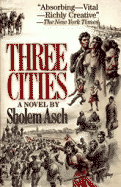
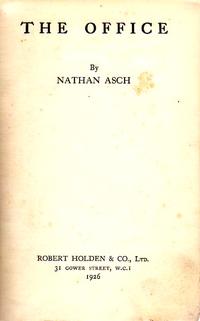
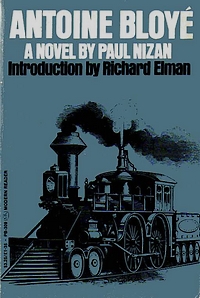 Antoine left with two stretchers, their bearers silent. They went on foot. In the depot at night you have to watch where you put your feet. The ground is full of traps and pitfalls, switch heads, ditches, and engines under steam, a tiny wisp of smoke coming from their stacks. Antoine was thinking. He did not take such deaths very easily. People said, “Accident at work.” And they tried to make you believe that work is a field of honor, while the company provides the widow with a pension, a niggardly pension, it parts with its pennies like a miser, it thinks that death is always overpaid; later it hires the sons of the dead and all is said.
Antoine left with two stretchers, their bearers silent. They went on foot. In the depot at night you have to watch where you put your feet. The ground is full of traps and pitfalls, switch heads, ditches, and engines under steam, a tiny wisp of smoke coming from their stacks. Antoine was thinking. He did not take such deaths very easily. People said, “Accident at work.” And they tried to make you believe that work is a field of honor, while the company provides the widow with a pension, a niggardly pension, it parts with its pennies like a miser, it thinks that death is always overpaid; later it hires the sons of the dead and all is said.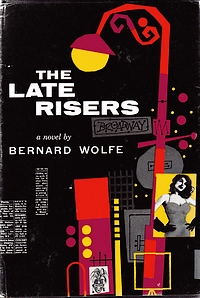
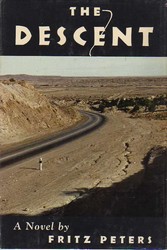
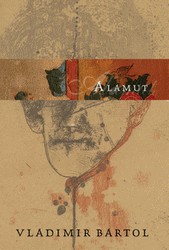
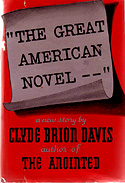
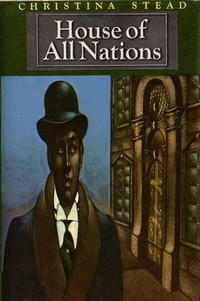
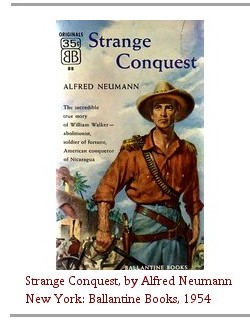
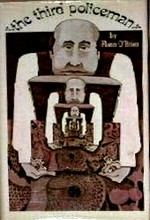
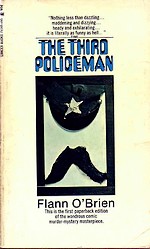 Starting out as a realistic novel,
Starting out as a realistic novel, 
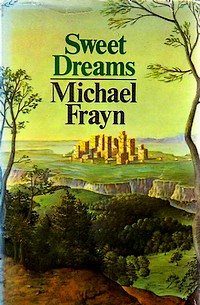
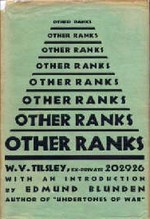 Close on now —must be. they’d be getting tea ready at home. Had they his field card yet? Fulshaw’s eyes were brilliant with excitement. The first birthday he’d missed at home. They’d send him some of the cake in his next parcel. Must stick near Jack. One up the spout … make sure his safety catch was off. What an uproar. Good job they didn’t know at home exactly what was happening.
Close on now —must be. they’d be getting tea ready at home. Had they his field card yet? Fulshaw’s eyes were brilliant with excitement. The first birthday he’d missed at home. They’d send him some of the cake in his next parcel. Must stick near Jack. One up the spout … make sure his safety catch was off. What an uproar. Good job they didn’t know at home exactly what was happening.


 Irmin, who the fateful news had at least reached, looked at towering figure in that low-roofed room, throwing a doubled shadow on the floor and walls. His eyes rested for a long while on the dead man. “I should like to have a model taken of that face,” he said huskily; ‘in plaster or something of the kind.”
Irmin, who the fateful news had at least reached, looked at towering figure in that low-roofed room, throwing a doubled shadow on the floor and walls. His eyes rested for a long while on the dead man. “I should like to have a model taken of that face,” he said huskily; ‘in plaster or something of the kind.” She inhaled noisily and violently through four huge nostrils, sent her hot breath pouring through four handsome mouths and sweated delicate, evanescent, white mist. Her function in existence was to carry blasting destruction at high speed to floating islands of men; a her intended destiny, at the opposite pole from that of the male bee, was to die in this act of impregnating her enemy with death. It was, perhaps, for this reason that she carried her distinctly feminine bow, which was high and very sharp, with graceful arrogance and some slight vindictiveness, after the manner of a perfectly controlled martyr selected for spectacular and aristocratic sacrifice. Her name was Delilah.
She inhaled noisily and violently through four huge nostrils, sent her hot breath pouring through four handsome mouths and sweated delicate, evanescent, white mist. Her function in existence was to carry blasting destruction at high speed to floating islands of men; a her intended destiny, at the opposite pole from that of the male bee, was to die in this act of impregnating her enemy with death. It was, perhaps, for this reason that she carried her distinctly feminine bow, which was high and very sharp, with graceful arrogance and some slight vindictiveness, after the manner of a perfectly controlled martyr selected for spectacular and aristocratic sacrifice. Her name was Delilah. … Someone–it could have been I!–introduced him to Olivia de Havilland, then coming to the peak of her career as a serious dramatic actress. They fell in love. Mark disappeared for a war stint, which he described in his stick for Who’s Who: “commanded Naval Detachment working with Chinese guerillas behind Japanese lines.” Regardless of the interference of this apocryphal duty and its hazards, he came back to marry Olivia. They had one son, Benjamin. For a time the marriage seemed very successful, even though a person alert to such situations could detect in its outline a time-honored disaster pattern…. Presently Olivia went on tour and the marriage went up the spout.
… Someone–it could have been I!–introduced him to Olivia de Havilland, then coming to the peak of her career as a serious dramatic actress. They fell in love. Mark disappeared for a war stint, which he described in his stick for Who’s Who: “commanded Naval Detachment working with Chinese guerillas behind Japanese lines.” Regardless of the interference of this apocryphal duty and its hazards, he came back to marry Olivia. They had one son, Benjamin. For a time the marriage seemed very successful, even though a person alert to such situations could detect in its outline a time-honored disaster pattern…. Presently Olivia went on tour and the marriage went up the spout.